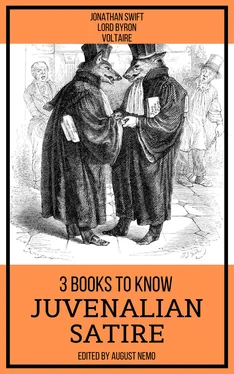Think ye he meant them for a slave?
Fill high the bowl with Samian wine!
We will not think of themes like these!
It made Anacreon's song divine:
He served—but served Polycrates—
A tyrant; but our masters then
Were still, at least, our countrymen.
The tyrant of the Chersonese
Was freedom's best and bravest friend;
That tyrant was Miltiades!
O! that the present hour would lend
Another despot of the kind!
Such chains as his were sure to bind.
Fill high the bowl with Samian wine!
On Suli's rock, and Parga's shore,
Exists the remnant of a line
Such as the Doric mothers bore;
And there, perhaps, some seed is sown,
The Heracleidan blood might own.
Trust not for freedom to the Franks—
They have a king who buys and sells;
In native swords, and native ranks,
The only hope of courage dwells;
But Turkish force, and Latin fraud,
Would break your shield, however broad.
Fill high the bowl with Samian wine!
Our virgins dance beneath the shade—
I see their glorious black eyes shine;
But gazing on each glowing maid,
My own the burning tear-drop laves,
To think such breasts must suckle slaves
Place me on Sunium's marbled steep,
Where nothing, save the waves and I,
May hear our mutual murmurs sweep;
There, swan-like, let me sing and die:
A land of slaves shall ne'er be mine—
Dash down yon cup of Samian wine!
Thus sung, or would, or could, or should have sung,
The modern Greek, in tolerable verse;
If not like Orpheus quite, when Greece was young,
Yet in these times he might have done much worse:
His strain display'd some feeling—right or wrong;
And feeling, in a poet, is the source
Of others' feeling; but they are such liars,
And take all colours—like the hands of dyers.
But words are things, and a small drop of ink,
Falling like dew, upon a thought, produces
That which makes thousands, perhaps millions, think;
'T is strange, the shortest letter which man uses
Instead of speech, may form a lasting link
Of ages; to what straits old Time reduces
Frail man, when paper—even a rag like this,
Survives himself, his tomb, and all that 's his.
And when his bones are dust, his grave a blank,
His station, generation, even his nation,
Become a thing, or nothing, save to rank
In chronological commemoration,
Some dull MS. oblivion long has sank,
Or graven stone found in a barrack's station
In digging the foundation of a closet,
May turn his name up, as a rare deposit.
And glory long has made the sages smile;
'T is something, nothing, words, illusion, wind—
Depending more upon the historian's style
Than on the name a person leaves behind:
Troy owes to Homer what whist owes to Hoyle:
The present century was growing blind
To the great Marlborough's skill in giving knocks,
Until his late life by Archdeacon Coxe.
Milton 's the prince of poets—so we say;
A little heavy, but no less divine:
An independent being in his day—
Learn'd, pious, temperate in love and wine;
But, his life falling into Johnson's way,
We 're told this great high priest of all the Nine
Was whipt at college—a harsh sire—odd spouse,
For the first Mrs. Milton left his house.
All these are, certes, entertaining facts,
Like Shakspeare's stealing deer, Lord Bacon's bribes;
Like Titus' youth, and Caesar's earliest acts;
Like Burns (whom Doctor Currie well describes);
Like Cromwell's pranks;—but although truth exacts
These amiable descriptions from the scribes,
As most essential to their hero's story,
They do not much contribute to his glory.
All are not moralists, like Southey, when
He prated to the world of 'Pantisocracy;'
Or Wordsworth unexcised, unhired, who then
Season'd his pedlar poems with democracy;
Or Coleridge, long before his flighty pen
Let to the Morning Post its aristocracy;
When he and Southey, following the same path,
Espoused two partners (milliners of Bath).
Such names at present cut a convict figure,
The very Botany Bay in moral geography;
Their loyal treason, renegado rigour,
Are good manure for their more bare biography.
Wordsworth's last quarto, by the way, is bigger
Than any since the birthday of typography;
A drowsy frowzy poem, call'd the 'Excursion.'
Writ in a manner which is my aversion.
He there builds up a formidable dyke
Between his own and others' intellect;
But Wordsworth's poem, and his followers, like
Joanna Southcote's Shiloh, and her sect,
Are things which in this century don't strike
The public mind,—so few are the elect;
And the new births of both their stale virginities
Have proved but dropsies, taken for divinities.
But let me to my story: I must own,
If I have any fault, it is digression—
Leaving my people to proceed alone,
While I soliloquize beyond expression;
But these are my addresses from the throne,
Which put off business to the ensuing session:
Forgetting each omission is a loss to
The world, not quite so great as Ariosto.
I know that what our neighbours call 'longueurs'
(We 've not so good a word, but have the thing
In that complete perfection which ensures
An epic from Bob Southey every spring),
Form not the true temptation which allures
The reader; but 't would not be hard to bring
Some fine examples of the epopee,
To prove its grand ingredient is ennui.
We learn from Horace, 'Homer sometimes sleeps;'
We feel without him, Wordsworth sometimes wakes,—
To show with what complacency he creeps,
With his dear 'Waggoners,' around his lakes.
He wishes for 'a boat' to sail the deeps—
Of ocean?—No, of air; and then he makes
Another outcry for 'a little boat,'
And drivels seas to set it well afloat.
If he must fain sweep o'er the ethereal plain,
And Pegasus runs restive in his 'Waggon,'
Could he not beg the loan of Charles's Wain?
Or pray Medea for a single dragon?
Or if, too classic for his vulgar brain,
He fear'd his neck to venture such a nag on,
And he must needs mount nearer to the moon,
Could not the blockhead ask for a balloon?
'Pedlars,' and 'Boats,' and 'Waggons!' Oh! ye shades
Of Pope and Dryden, are we come to this?
That trash of such sort not alone evades
Contempt, but from the bathos' vast abyss
Floats scumlike uppermost, and these Jack Cades
Of sense and song above your graves may hiss—
The 'little boatman' and his 'Peter Bell'
Can sneer at him who drew 'Achitophel'!
T' our tale.—The feast was over, the slaves gone,
The dwarfs and dancing girls had all retired;
The Arab lore and poet's song were done,
And every sound of revelry expired;
The lady and her lover, left alone,
The rosy flood of twilight's sky admired;—
Ave Maria! o'er the earth and sea,
That heavenliest hour of Heaven is worthiest thee!
Ave Maria! blessed be the hour!
The time, the clime, the spot, where I so oft
Have felt that moment in its fullest power
Sink o'er the earth so beautiful and soft,
While swung the deep bell in the distant tower,
Or the faint dying day-hymn stole aloft,
And not a breath crept through the rosy air,
And yet the forest leaves seem'd stirr'd with prayer.
Ave Maria! 't is the hour of prayer!
Ave Maria! 't is the hour of love!
Ave Maria! may our spirits dare
Читать дальше












